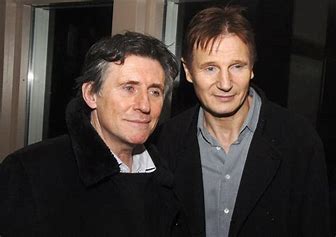
by Karin Silvina Hiebaum
The life of an actor is one of the most interesting and exciting in the entertainment industry. Being an actor is not just about playing a role, it is a way of life that involves dedication, passion and perseverance.
Actors often have atypical schedules, intense rehearsals, constant travel and often live in constant job uncertainty. But, at the same time, they also enjoy the satisfaction of seeing their work on the big screen or on a theatre stage, and of being recognised for their talent and professionalism.
An actor’s working hours: Everything you need to know
An actor’s working hours may vary depending on the production they are working on. Generally, actors are expected to be available for long hours and on non-consecutive days.
La vida de un actor es una de las más interesantes y emocionantes que existen en la industria del entretenimiento. Ser actor no es solo interpretar un papel, sino que es una forma de vida que implica dedicación, pasión y perseverancia.




Los actores suelen tener horarios atípicos, ensayos intensos, viajes constantes y muchas veces viven en una continua incertidumbre laboral. Pero, al mismo tiempo, también disfrutan de la satisfacción de ver su trabajo en la pantalla grande o en las tablas de un teatro, y de ser reconocidos por su talento y profesionalismo.
Here are some things to consider regarding an actor’s working hours:
Rehearsals may be scheduled during the day or evening, and may last several hours.
Scene recordings may start early in the morning and end late at night.
Actors may work on non-consecutive days, which means they may have rest days between recordings.
An actor’s work schedule may be affected by weather and other external conditions, such as sunlight and temperature.
Actors may also have to attend promotional events and photo shoots, which may require additional time away from the film set.
Overall, an actor’s work schedule can be very demanding and require a lot of dedication and flexibility to meet the requirements of the production.
Horario de trabajo de un actor: Todo lo que necesitas saber
El horario de trabajo de un actor puede variar dependiendo de la producción en la que esté trabajando. Generalmente, se espera que los actores estén disponibles durante largas horas y en días no consecutivos.



A continuación, se presentan algunos aspectos que se deben tener en cuenta en cuanto al horario de trabajo de un actor:
- Los ensayos pueden ser programados durante el día o la noche, y pueden durar varias horas.
- Las grabaciones de las escenas pueden comenzar temprano en la mañana y terminar tarde en la noche.
- Los actores pueden trabajar en días no consecutivos, lo que significa que pueden tener días de descanso entre las grabaciones.
- El horario de trabajo de un actor puede ser afectado por el clima y otras condiciones externas, como la luz solar y la temperatura.
- Los actores también pueden tener que asistir a eventos promocionales y sesiones de fotos, lo que puede requerir tiempo adicional fuera del set de grabación.
Talent: It is important to have acting skills and abilities. For this, it is advisable to take classes, courses and workshops specialising in the subject.
Versatility: A versatile actor is one who has the ability to play different characters and situations. To achieve this, it is necessary to be open to experimenting and leaving your comfort zone.
Discipline: Discipline is fundamental to succeed in any area of life, and the world of acting is no exception. It is important to maintain a consistent work routine, be prepared for auditions and rehearsals, and have a good attitude at all times.
Networking: Meeting the right people can be very beneficial to an actor’s career. Attending events, festivals and industry-related activities is a great way to make contacts and establish professional relationships.
Persistence: Succeeding in the acting industry can be difficult and can take time. It is important to be patient and keep going, even in times of rejection and frustration.
Secrets Revealed: How actors know what to do in each scene
Actors use various techniques to prepare for each scene and know what to do in it. Some of these techniques include:
En general, el horario de trabajo de un actor puede ser muy exigente y requerir mucha dedicación y flexibilidad para cumplir con los requerimientos de la producción.
Los 5 aspectos clave que todo actor debe tener para triunfar en la industria
Los 5 aspectos clave que todo actor debe tener para triunfar en la industria:
- Talento: Es importante tener habilidades y destrezas en la actuación. Para ello, es recomendable tomar clases, cursos y talleres especializados en el tema.
- Versatilidad: Un actor versátil es aquel que tiene la capacidad de interpretar diferentes personajes y situaciones. Para lograrlo, es necesario estar abierto a experimentar y salir de la zona de confort.
- Disciplina: La disciplina es fundamental para tener éxito en cualquier área de la vida, y el mundo de la actuación no es la excepción. Es importante mantener una rutina de trabajo constante, estar preparado para las audiciones y ensayos, y tener una buena actitud en todo momento.
- Networking: Conocer a las personas adecuadas puede ser muy beneficioso para la carrera de un actor. Asistir a eventos, festivales y actividades relacionadas con la industria es una excelente manera de hacer contactos y establecer relaciones profesionales.
- Persistencia: Triunfar en la industria de la actuación puede ser difícil y puede llevar tiempo. Es importante tener paciencia y seguir adelante, incluso en momentos de rechazo y frustración.
Secrets revealed: How actors know what to do in each scene
Actors use various techniques to prepare for and know what to do in each scene. Some of these techniques include:
Reading the script: Actors study the script to learn the context of the scene, their goals and the motivation behind their actions.
Character research: Actors research the background of their characters to understand their personalities and behaviours.
Improvisation: Some actors practice improvisation to develop their ability to react naturally in the moment.
Rehearsals: Rehearsals are an opportunity for actors to practice their lines and actions, and work with the director to refine their performance.
Scene Analysis: Actors break down each scene into its individual components to understand its structure and how their actions fit within it.
Secretos revelados: Cómo los actores saben qué hacer en cada escena
Los actores utilizan varias técnicas para prepararse para cada escena y saber qué hacer en ella. Algunas de estas técnicas incluyen:
- Leer el guión: Los actores estudian el guión para conocer el contexto de la escena, sus objetivos y la motivación detrás de sus acciones.
- Investigación de personajes: Los actores investigan el trasfondo de sus personajes para comprender sus personalidades y comportamientos.
- Improvisación: Algunos actores practican la improvisación para desarrollar su capacidad de reaccionar de manera natural en el momento.
- Ensayos: Los ensayos son una oportunidad para que los actores practiquen sus líneas y acciones, y trabajen con el director para perfeccionar su actuación.
- Análisis de escena: Los actores desglosan cada escena en sus componentes individuales para comprender su estructura y cómo encajan sus acciones dentro de ella.
- Técnicas de actuación: Los actores pueden utilizar diferentes técnicas de actuación, como el método Stanislavski, para ayudarles a conectarse emocionalmente con sus personajes y las situaciones en las que se encuentran.
Desde estudiar el guión hasta practicar la improvisación, su objetivo es crear actuaciones naturales y auténticas que conecten con el público.
Acting techniques: Actors can use different acting techniques, such as the Stanislavski method, to help them connect emotionally with their characters and the situations they find themselves in.
From studying the script to practising improvisation, their goal is to create natural and authentic performances that connect with the audience.
What do actors do? Find out in this article
Actors are professionals who play a variety of characters in plays, films, TV series and other media. Their job is to bring these characters to life and convey their emotions, thoughts and feelings to the audience. Some of the things actors do are:
Learn the script and memorise their lines.
Research the character they are going to play, its context and history.
Practice intonation, diction and body language to bring the character to life.
Rehearse with other actors and the director to coordinate scenes and achieve a more fluid and natural performance.
Work as a team with other professionals such as costume designers, make-up artists, set designers, among others.
¿Qué hacen los actores? Descúbrelo en este artículo
Los actores son profesionales que se dedican a interpretar diversos personajes en obras de teatro, películas, series de televisión y otros medios. Su trabajo consiste en dar vida a estos personajes y transmitir sus emociones, pensamientos y sentimientos al público. Algunas de las cosas que hacen los actores son:
- Aprender el guión y memorizar sus líneas.
- Investigar sobre el personaje que van a interpretar, su contexto y su historia.
- Practicar la entonación, la dicción y la expresión corporal para darle vida al personaje.
- Ensayar con otros actores y el director para coordinar las escenas y lograr una actuación más fluida y natural.
- Trabajar en equipo con otros profesionales como diseñadores de vestuario, maquilladores, escenógrafos, entre otros.
- Realizar pruebas de cámara y audiciones para conseguir nuevos trabajos.
- Participar en ruedas de prensa y entrevistas para promocionar sus proyectos.
Sin embargo, su trabajo es fundamental para el mundo del entretenimiento y la cultura, y muchas veces nos hacen vivir experiencias inolvidables a través de sus interpretaciones.
Work in a team with other professionals such as costume designers, make-up artists, set designers, among others.
Carry out camera tests and auditions to get new jobs.
Participate in press conferences and interviews to promote their projects.
However, their work is fundamental to the world of entertainment and culture, and they often give us unforgettable experiences through their performances.
The life of an actor can be exciting and rewarding, but it can also be difficult and challenging. Actors must be willing to work hard, persevere through rejection and face financial uncertainty. However, for those who are passionate about the craft of acting, the chance to tell stories and touch people’s lives can make it all worthwhile. Being an actor is a career that requires dedication, commitment and a positive attitude to succeed in the entertainment industry.
La vida de un actor puede ser emocionante y gratificante, pero también puede ser difícil y desafiante. Los actores deben estar dispuestos a trabajar duro, perseverar a través de rechazos y enfrentar la incertidumbre financiera. Sin embargo, para aquellos que están apasionados por el arte de la actuación, la posibilidad de contar historias y tocar las vidas de las personas puede hacer que todo valga la pena. Ser actor es una carrera que requiere dedicación, compromiso y una actitud positiva para tener éxito en la industria del entretenimiento.
Liam Neeson: mas de 45 años de trayectoria
Desde que comenzó a interpretar sus primeros papeles a finales de la década de los 70 hasta nuestros días, Liam Neeson ha acumulado más de 140 créditos que, con los altibajos de rigor, le han convertido en uno de los actores más prolíficos y versátiles en activo. 45 años de trayectoria en los que ha explorado infinidad de géneros y registros diferentes en producciones de todas las escalas y presupuestos.
Liam Neeson: over 45 years of experience
Since he began playing his first roles at the end of the 70s until today, Liam Neeson has accumulated more than 140 credits which, with the usual ups and downs, have made him one of the most prolific and versatile actors working today. A career spanning 45 years in which he has explored an infinite number of different genres and registers in productions of all scales and budgets.
Sword, witchcraft and love of cinema
With almost half a century of craft behind him, staying on the job must have a vocational factor beyond the strictly economic and work-related, and in an interview with IndieWire, the Irishman confirmed it in no uncertain terms: he still gets excited on the set.
«I love working, because I still get excited to see a bunch of strangers from some country looking for funding together and offering me a script. Men and women I’ve never met in my life, who want me to be in their film».
Espada, brujería y amor por el cine
Con casi medio siglo de oficio a sus espaldas, seguir al pie del cañón debe tener un factor vocacional más allá de lo estrictamente económico y laboral, y en una entrevista con IndieWire, el irlandés lo confirmó sin medias tintas: aún sigue emocionándose en el plató.
«Adoro trabajar, porque todavía me emociona ver a un montón de desconocidos de algún país que buscan financiación juntos y me ofrecen un guion. Hombres y mujeres que nunca he conocido en mi vida, que quieren que esté en su película».
Además, Neeson explicó cual es la primera experiencia en un rodaje que recuerda. Esta no fue otra que en la mítica ‘Excalibur’ de un John Boorman que, además de su director, fue una suerte de mentor para él y algunos de sus compañeros.
«Bueno, una película importante sería Excalibur, que rodamos en Irlanda en 1980. Fue extraordinario, porque tenía a Helen Mirren y Nicol Williamson —que ahora está muerto, que descanse en paz, un actor extraordinario—. Allí estábamos, todos vestidos con armaduras brillantes y a caballo. Era como un sueño hecho realidad, ¿sabes? Contar este mito artúrico, esta historia que tiene miles de años. Había algo ahí.
Y rodarlo en Irlanda fue genial. John Boorman, que era el director, fue un mentor maravilloso para nosotros, para Gabriel Byrne, Ciaran Hinds y para mí… Nos llevaba detrás de la cámara, nos mostraba lo que estaba viendo, daba la razón por la que estaba rodando de esta manera, y explicaba qué hace la cámara, las diferentes formas en que nos iba a filmar».

In addition, Neeson explained the first filming experience he remembers. This was none other than the legendary ‘Excalibur’ by John Boorman, who, as well as being the director, was a kind of mentor for him and some of his colleagues.
«Well, an important film would be Excalibur, which we shot in Ireland in 1980. It was extraordinary, because it had Helen Mirren and Nicol Williamson – who is now dead, may he rest in peace, an extraordinary actor. There we were, all dressed up in shining armour and on horseback. It was like a dream come true, you know, to tell this Arthurian myth, this story that’s thousands of years old. There was something there.
And to shoot it in Ireland was great. John Boorman, who was the director, was a wonderful mentor to us, to Gabriel Byrne, Ciaran Hinds and myself… He would take us behind the camera, show us what he was seeing, give the reason why he was shooting it this way, and explain what the camera does, the different ways he was going to film us.»
Pero, a pesar de su buen recuerdo de ‘Excalibur’, el intérprete no es capaz de quedarse con un rodaje favorito ni una película predilecta. Todas y cada una son especiales, y el motivo no es otro que los equipos involucrados en ellas.
«Siento que todas son especiales. Eso no significa que todas sean grandes películas. Ha habido algunos fallos, pero siempre me llevo algo. Por lo general, se trata del equipo en la mayoría de ellas. Amo a los equipos de filmación, de verdad. He trabajado con algunos actores maravillosos, por supuesto, y eso ha sido genial, pero los equipos de cine, son una raza especial.
Me siento enriquecido, lo digo en serio, cuando estoy en su compañía. Te vuelves muy cercano. Después de ocho semanas, diez semanas, te vas. Nunca digo adiós, siempre digo: ‘Nos vemos en el camino'».
Desde luego, hay que querer a este hombre.

All of Zack Snyder’s films draw from the same source: this epic 80s adventure film is his main source of inspiration (and he has copied it many times).
But despite his fond memories of ‘Excalibur’, the actor is not able to pick a favourite film or a favourite film. Each and every one is special, and the reason is none other than the crews involved.
«I feel they are all special. That doesn’t mean they are all great films. There have been a few duds, but I always take something away. It’s usually about the crew on most of them. I love the film crews, I really do. I’ve worked with some wonderful actors, of course, and that’s been great, but film crews, they’re a special breed.
I feel enriched, I really do, when I’m in their company. You become very close. After eight weeks, ten weeks, you leave. I never say goodbye, I always say: ‘See you on the road'».




